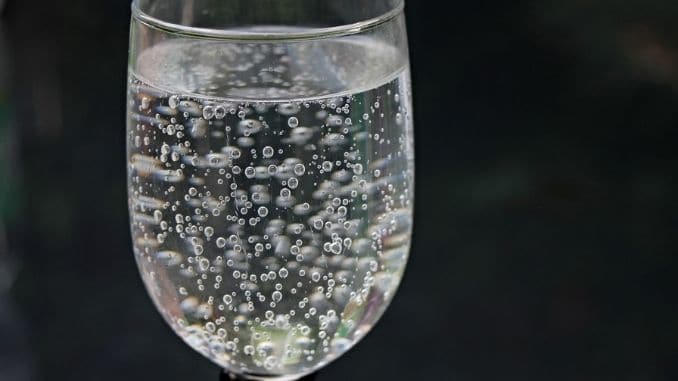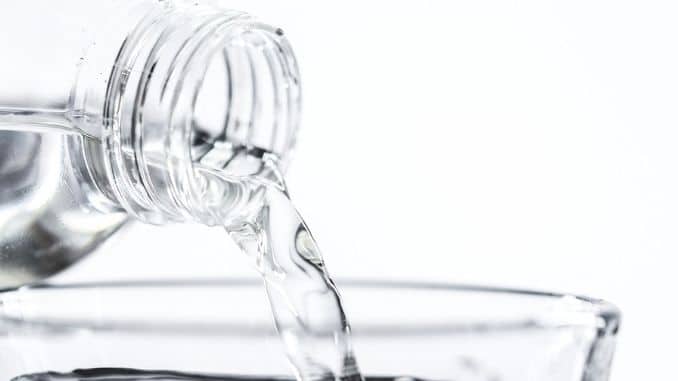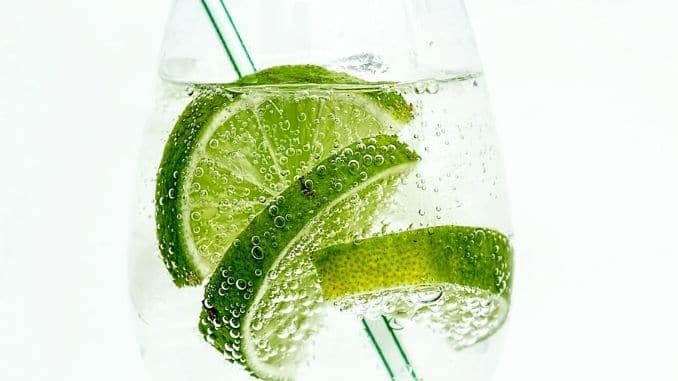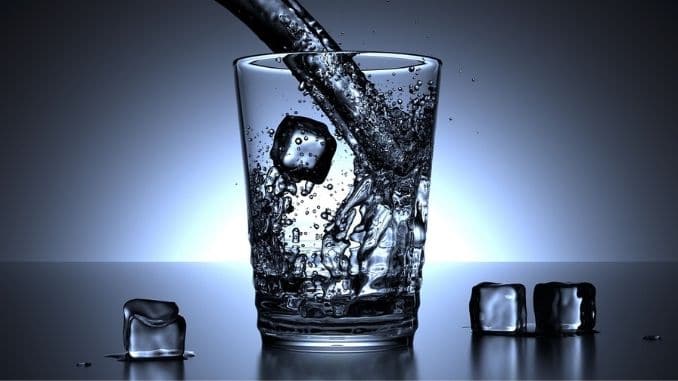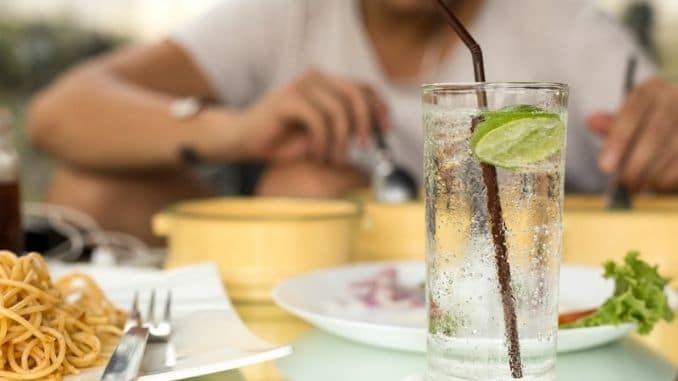
Soda pop isn’t good for you.
This is the message we’ve heard for several years and for a good reason. One 12-ounce can of soda contains about 40 grams of sugar, which equals about 10 teaspoons. That’s more than the American Heart Association (AHA) recommends adults consume for an entire day. It suggests no more than 9 teaspoons for men and 6 for women.
Studies have linked regular consumption of soda to an increased risk for overweight and obesity, heart disease, and type 2 diabetes. In a recent study led by the Harvard University T.H. Chan School of Public Health, scientists found that the more sugar-sweetened beverages people drank, the greater their risk of premature death.
Lead author of the study, Vasanti Malik, suggested we all limit our intake of these sugary beverages and replace them with water instead.
However, many long for something more exciting in their beverages, so they turn to carbonated water, which contains those bubbles we like in soda without all the sugar and calories.
Is this a good idea?
Types of Carbonated Water
In general, we have three types of carbonated water from which to choose:
- Club soda: This is plain water with various additives, including carbonation (dissolved carbon dioxide gas) as well as sodium bicarbonate (baking soda), sodium citrate, disodium phosphate and, sometimes, sodium chloride. The minerals give this beverage a bit of a slightly salty or bitter “bite.” It’s a calorie- and sugar-free and is often used to add bubbles to cocktails, lemonade or juice.
- Seltzer (sparkling water): This is also plain water that has carbonation added, but it usually doesn’t have the minerals that club soda has. It’s understood to be carbonated water with no other added ingredients, although some varieties are flavored with fruit essence and oils. If you have a SodaStream or other carbonation product at home that you use to add bubbles to your water, you are making seltzer.
- Sparkling mineral water: This is made of water that usually comes from a natural spring or well and can be naturally carbonated, depending on the source. It often contains natural minerals that are picked up as the water filters through multiple layers of underground rock and sediment. The flavor varies depending on the product and the variety of minerals present.
Other names for the same group of beverages may include soda water or fizzy water. Soda water is typically used to mean seltzer or club soda. All of these options will get you a sugar-free and calorie-free carbonated water beverage — one that is believed to be a healthy alternative to sugar-sweetened beverages.
6 Reasons Why Drinking Carbonated Water May Be Healthy for You
According to several scientific studies, drinking carbonated water can be good for you in the following ways.
1. Provides a Satisfying Alternative to Soda
If you find it difficult to wean yourself off soda pop, seltzer and other types of carbonated water can help you break the habit, and that can have several positive ramifications on your health.
Sparkling water has no calories, which can help you maintain a healthy weight or perhaps even lose weight. It has no sugar, so you avoid the sugar-spikes that soda creates, protecting yourself from obesity and possibly type 2 diabetes.
Sparkling water still provides a satisfying and enjoyable beverage, so you may not miss your sugary sodas as much — making it easier to stick with healthier choices.
2. Better for Your Bones than Soda
In addition to their sugar and calorie content, sugary sodas also have a high acid content. That has raised concerns that the beverages may negatively affect bone health.
So far, we have little evidence of a connection between all sodas and bone problems. We do, however, have studies showing that colas — but not other carbonated beverages — are associated with lower bone mineral density in older women. In a 2006 study, researchers found that cola intake was associated with significantly lower bone mineral density (BMD) in the hips. gulp it down sodas lacked this effect.
Colas are known to have higher levels of phosphoric acid than clear soda and carbonated water, and it’s the phosphorus that scientists believe may be crowding out the calcium needed for healthy bones. Colas also contain caffeine, which can interfere with calcium absorption, whereas most clear sodas and seltzers do not contain caffeine.
Switching to seltzer water and other similar products, then, may help to preserve your bones as you age — particularly if the product contains some calcium.
3. Better for Your Teeth Than Soda
Because of their acid content and high-sugar content, sodas are terrible for your teeth. They bathe them in sugar, which encourages the growth of plaque-forming bacteria while simultaneously exposing them to acid, which can wear away tooth enamel.
Sparkling water lacks the sugar, so right there, it saves your teeth from the bacteria banquet. What about the acid, however? Might sparkling water still contribute to enamel degradation?
It’s true that sparkling water is slightly more acidic than plain water but, according to a study published in the Journal of the American Dental Association, when nearly 400 beverages, including sodas, sports drinks, juices, teas, and sparkling waters, were tested, sparkling water came up as “minimally erosive.” Sports drinks, on the other hand, were “extremely erosive.”
Another study investigated the erosive potential of soft drinks and sparkling mineral waters and found that sparkling water was 100 times less erosive than soft drinks.
That means switching to seltzer water is a better option for your teeth. Make sure you’re still drinking plenty of regular water as well to rinse away any low levels of acid.
4. May Increase Feelings of Fullness
If you’re on a diet, seltzer can be a great choice for a beverage as it can help keep you satisfied for longer than plain water will.
In one study, for example, researchers found that sparkling water helped food remain the first part of the stomach for longer, triggering a sensation of fullness. In another small study, participants reported feeling fuller after drinking 8 ounces of soda water as compared to regular water.
So far, we have only small studies on this connection, but the results suggest that sparkling water may help you stick to your diet plan.
5. May Help Relieve Constipation and Indigestion
If you’re struggling with constipation, drinking carbonated water may help. In a two-week study of 40 people who had suffered from strokes and were struggling with constipation, those who drank carbonated water experienced an average of double the bowel movement frequency as those who drank regular water. They also reported a 58 percent decrease in symptoms.
Sparkling water may also help ease stomach indigestion. In one small study of people with chronic digestive issues, those who drank carbonated water had significant improvements in digestive symptoms, constipation, and gallbladder emptying.
These are small studies, however, and we need more research before we can say for sure that sparkling water may help digestion.
Meanwhile, if you are vulnerable to the gas, bloating, acid reflux or irritable bowel syndrome (IBS), be careful with carbonated water. Because of its acid content, it may encourage uncomfortable digestive symptoms, particularly if you consume large quantities or drink it quickly.
6. May Benefit Heart Health
We have only small studies so far, but they suggest that drinking carbonated water may help improve heart health.
In one study of 18 postmenopausal women, researchers found that drinking sodium-rich carbonated water helped decrease LDL “bad” cholesterol, a dangerous inflammation and blood sugar levels. Participants also experienced an increase in HDL “good” cholesterol. The researchers concluded that consumption of this water could play a beneficial role in the prevention of cardiovascular disease and metabolic syndrome.
When the researchers used the data to estimate the participants’ risk of developing heart disease within 10 years, they found that the risk was 35 percent lower in those drinking carbonated water than in those drinking the control water.
This was a very small and limited study, however, so we need more research before we can be sure of this effect.
Does Carbonated Water Encourage Weight Gain?
Although most of the research we have so far suggests that sparkling water is unlikely to harm you — and that it’s certainly a healthier alternative to sugary sodas — one small study recently suggested it may not be a good idea to drink a lot of it.
Researchers found that when animal subjects ingested the carbonated gas in a beverage like seltzer, it triggered a surge in a key hunger hormone. This can increase hunger and encourage overeating.
When the scientists gave the subjects “flat” sugary drinks alongside their normal diet, the subjects put on no more weight than those given plain water. However, fizzy drinks, including zero-calorie versions containing artificial sweeteners, resulted in the subjects putting on extra weight — an average of 20 percent more than those given flat beverages.
Tests also showed that levels of the hunger hormone ghrelin were significantly higher in subjects after consuming a fizzy drink.
Scientists followed up with tests on 20 healthy human volunteers. They found those given sparkling water at breakfast had ghrelin levels six times higher than those given still water.
Regular Water Is Best, But Seltzer Can Be a Healthy Alternative
This small study is concerning but, so far, it pales in the face of all the research showing that seltzer is unlikely to harm you when consumed in moderate amounts. Better yet, it can be a much better option than drinking sugar-sweetened beverages and may help you improve your health if you make the switch.
The bottom line, however, is that plain water is likely your healthiest choice when it comes to beverages. Following that, tea is a close second, containing many healthy components that have been shown to help prevent disease.
Even coffee, if you are not sensitive to the caffeine, has health benefits that have been supported in scientific studies, including the ability to help protect against Parkinson’s disease and Alzheimer’s disease.
The choice is up to you. If you have a soda habit you want to break, try using seltzer instead. If you want a sparkling drink with your dinner out, feel free to indulge. Observe how it affects your digestion, whether it’s helpful or harmful, and make your decisions from there as far as how often you’ll enjoy this effervescent drink.
For your complete guide to the healthiest foods, make sure to check out The Best Foods that Rapidly Slim & Heal in 7 Days, here!
.

